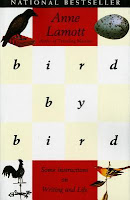The web-based nonprofit NaNoWriMo (http://nanowrimo.org) was created to help aspiring novelists meet the goal of writing 50,000 words, which is the minimum length for a novel. Its objective is to help writers produce a workable rough draft rather than publication ready story. Participation is free. Users need only to register for an account. Then beginning mid-month, they can start uploading their text to verify the word count. Novels can be written in any language and any genre with any theme whatsoever. Quite simply, if you believe you’re writing a novel, then so does NaNoWriMo. It offers the support of an online community in addition to writing resources and pep talks from established authors.
KHCPL is a 2015 NaNoWriMo Come Write In! Center. KHCPL South will host a NaNoWriMo Come Write In! workshop from 2:00 to 5:00 p.m. every Sunday in November. Meet with other writers. Swap ideas. Get inspired. Or simply write.
KHCPL also offers free Wi-Fi, quiet study rooms, and public access computers. Our collection contains both books to help you hone your writer skills and conduct research.
Writers’ Manuals in KHCPL’s Collection include:
• Bird by Bird by Anne Lamott
• Characters & Viewpoint by Orson Scott Card
• The Elements of Style by William Strunk Jr. and E. B. White
• On Writing by Stephen King
• Steering the Craft by Ursula K. Le Guin
• Writing Down the Bones by Natalie Goldberg
• Zen in the Art of Writing by Ray Bradbury
1. Use the time of a total stranger in such a way that he or she will not feel the time was wasted.
2. Give the reader at least one character he or she can root for.
3. Every character should want something, even if it is only a glass of water.
4. Every sentence must do one of two things – reveal character or advance the action.
5. Start as close to the end as possible.
6. Be a sadist. No matter how sweet and innocent your leading characters, make awful things happen to them–in order that the reader may see what they are made of.
7. Write to please just one person. If you open a window and make love to the world, so to speak, your story will get pneumonia.
8. Give your readers as much information as possible as soon as possible. To heck with suspense. Readers should have such complete understanding of what is going on, where and why, that they could finish the story themselves, should cockroaches eat the last few pages.
Citation
The genre-defying storyteller Neil Gaiman offers these rules for writing:
1. Write.
2. Put one word after another. Find the right word, put it down.
3. Finish what you're writing. Whatever you have to do to finish it, finish it.
4. Put it aside. Read it pretending you've never read it before. Show it to friends whose opinion you respect and who like the kind of thing that this is.
5. Remember: when people tell you something's wrong or doesn't work for them, they are almost always right. When they tell you exactly what they think is wrong and how to fix it, they are almost always wrong.
6. Fix it. Remember that, sooner or later, before it ever reaches perfection, you will have to let it go and move on and start to write the next thing. Perfection is like chasing the horizon. Keep moving.
7. Laugh at your own jokes.
8. The main rule of writing is that if you do it with enough assurance and confidence, you're allowed to do whatever you like. (That may be a rule for life as well as for writing. But it's definitely true for writing.) So write your story as it needs to be written. Write it honestly, and tell it as best you can. I'm not sure that there are any other rules. Not ones that matter.
Citation
The charmingly irascible Patrick Rothfuss explains his one true rule of writing:
1. Yay, Verily. You Must Sit Down and Write.
1a. Thou shalt not go see a movie instead. Or watch reality TV. Thou shalt write. No. Stop. You don’t need to clean out the fridge right now. Neither dost thou need to sort the recycling. I’m not even kidding. Go and write.
1b. Thou shalt not just think about writing. Seriously. That is not writing. The worst unpublished novel of all-time is better than the brilliant idea you have in your head. Why? Because the worst novel ever is written down. That means it’s a book, while your idea is just an idle fancy. My dog used to dream about chasing rabbits; she didn’t write a novel about chasing rabbits. There is a difference.
1c. Thou shalt not read, either. I know it’s book-related, but it’s not actually writing. Yes, even if it’s a book about how to write. Yes, even if you’re doing research. You can research later. Sit. Down. Write.
So I say unto you: You don’t have to start entirely from scratch. (But you can’t count previously written words in your word count. Obviously.)
So I say unto you: Revise sometimes.
So I say unto you: Follow your enthusiasm.
Citation






No comments:
Post a Comment